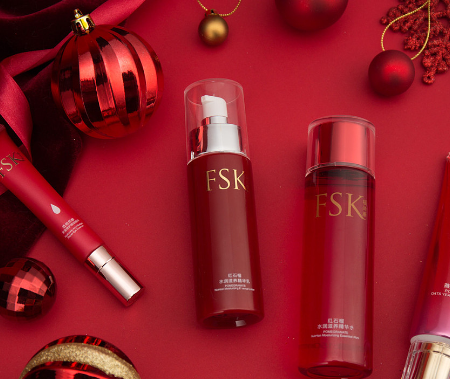Cosmetics are an integral part of modern life, and thickeners are a commonly used additive in cosmetics. Thickeners play an important role in cosmetics, changing the flow and texture of a product, increasing its thickness and viscosity, making it easier to use and apply to the skin.

Which thickeners are generally used in cosmetics
Common thickeners include natural and synthetic ingredients. Natural thickeners can come from plants, marine and mineral sources, such as tapioca starch, seaweed extracts (such as sodium alginate), pectin and gelatin. Synthetic thickeners include polymers and surfactants, such as mannitol, hydroxypropyl cellulose, polyacrylamide, polyvinylpyrrolidone, etc.
Benefits of thickeners for cosmetics
Thickeners impart a range of benefits to cosmetic products:
(1) Improve texture: Thickeners can make cosmetics thicker and increase their adhesion, making the product easier to apply and use. This can improve the texture of cosmetics and enhance the user experience.
(2) Improve stability: Some cosmetic formulas contain a variety of water-insoluble ingredients. Thickeners can help stabilize the dispersion and suspension of these ingredients, prevent their precipitation and stratification, and maintain the uniformity and stability of the product.
(3) Increase viscosity: Thickeners can increase the viscosity of cosmetics, making them easier to adhere to the skin. This is particularly important in skin care products, as higher viscosity ensures that the product remains on the skin's surface longer, enhancing its functionality and effectiveness.
(4) Control fluidity: Some cosmetics require lower fluidity in specific areas for more precise application. Thickeners regulate the fluidity of cosmetics, making them easier to control and position during application.
(5) Reduce costs: By using thickeners, manufacturers can reduce the use of some expensive ingredients while still maintaining the texture and effect of cosmetics, which helps reduce the production cost of the product.
Thickeners play the following roles in cosmetics:
(1) Adjust texture: Thickeners can adjust the texture of cosmetics to make them smoother, thicker or softer to meet the preferences and needs of different users.
(2) Increase moisturizing: Some thickeners have good moisturizing properties, which can help the skin lock in moisture and keep the skin moist and smooth.
(3) Helping the absorption of ingredients: Some thickeners have the function of promoting the absorption of other active ingredients by the skin and can enhance the effect of cosmetics.
(4) Stabilized emulsion: In emulsion products, thickeners can stabilize the mixed state of oil and water phases and prevent stratification and separation.
(5) Adjust pH value: Some thickeners also have the function of adjusting the pH value of cosmetics, which helps maintain the stability and safety of the product.
How to Buy the Best Thickeners for Cosmetics
When purchasing a thickener suitable for cosmetics, there are a few things to consider:
(1) Safety and stability: Ensure that the thickener purchased complies with relevant industry standards and regulatory requirements and has undergone strict safety and stability testing.
(2) Functionality: Select the appropriate thickener according to the specific cosmetic formula needs. Different thickeners have different properties and functions, so selection needs to be based on the goals and requirements of the product.
(3) Supplier reputation and service: Choose a trustworthy supplier to ensure the reliability of its product quality and after-sales service.
In summary, thickeners play an important role in cosmetics, being able to change the fluidity and texture of the product and increase consistency and viscosity, thereby making the cosmetics easier to use and apply. Choosing the right thickener is crucial to making high-quality cosmetics, so it is recommended to choose a reputable and professional supplier, such as KEMFOOD, to ensure the quality and effect of the product.
